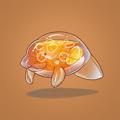Like many of us, I had watched the highly acclaimed Swedish 2008 film and ignored Hollywood’s perplexing attempt to make a westernised version but, despite having the John Lindqvist book on my shelves for the past decade, and never quite got round to reading the original. Which is a pity, as the novel is a real treat and goes deeper and further than the film.
The first thing that strikes me about Lindqvist’s novel is its clear sense of space and location. This is a story that, in many ways, is first and foremost about a specific place and time in a particularly destitute part of Sweden. One reading of the novel could be that all the horror and supernatural elements of the story are a metaphor for the rotten core at the heart of this community, and read in such a way, the novel remains deeply uncomfortable. Regardless of the vampire’s presence in the story, we are presented with countless people all of whom are beyond hope. One no-hoper, walking home drunk, comes up with a plan to turn his life around. He’ll go travelling; do what he’s always wanted to do. But we know he’ll never do it. He’ll wake up and find either that world won’t bend to his wishes or he doesn’t have the will to do the bending. His death when Eli takes him merely takes away the false hope.
The characters in this novel are generally unlikeable, or at least deeply flawed. It’s something to be said of Lindqvist’s style in that Eli is by far the most likeable character in the book, and Eli is a ruthless, pragmatic killer. Yet none of the other characters are irredeemable. Oskar, Tommy and Lacke all gain our sympathy, our pity, but all three stop short of being pleasant. Just when we think we should be entirely on Oskar’s side, Lindqvist gives us just enough dirt and grime to make us draw away. I feel sorry for Oskar, but I don’t think we could be friends.
And then, even Jimmy even the paedophile, Hakan, have moments to redeem them. Jimmy clearly has a troubled home life - he’s a product of the broken community he grows up in and, just like everyone else there, is damaged beyond repair before the vampire ever enters the scene. And Hakan? He’s selfish and cowardly, exploits young boys and seemingly the motivation for following Eli is his lust for the child-like vampire. Yet, he is also loyal, grateful and has does indeed a moral code and compass of sorts.
Eli, the character around which the novel circles, is fascinating. An enigma and an interesting take on the vampire myth. However, particularly in a modern context, a while after the novel was written and long after it was set, the most notable characteristic is their gender. I use “their” here because the novel refers to them as both a he and a she. Lindqvist appears to grant the authority of the novel to idea that Eli is a he. He was born a boy and, seemingly, still identifies as one. Clearly, as a character who refers to himself as a he, that should be the end of it. Furthermore, there is clearly nothing wrong with someone presenting as female and identifying as male. However, it appears the narrative is taking a “biology is truth” stance. All the evidence points against this. Eli presents as female and has clearly altered their name to a more feminine sounding name. When offered a choice of clothes to wear, Eli chooses the frock. The fact that Eli was both male is interesting, but the insistence in the narrative in changing the pronoun once the “biological truth” is revealed is problematic. That said, it seems likely that Lindqvist is more concerned with addressing the discomfort and confusion surrounding homosexuality with his treatment of Eli and, by extension, Oskar’s feelings for him.
Lindqvist tells a tale that continually plays with and undermines your expectations. As a vampire novel, it sits neither in the vampire-as-monster/villain genre, nor in the good/human/remorseful-vampire genre; but manages to walk along both those paths. It’s an uncomfortable novel, with a horrible sense of the inevitable, and an ending that is both powerful and unsatisfactory, and that’s not necessarily a criticism.









